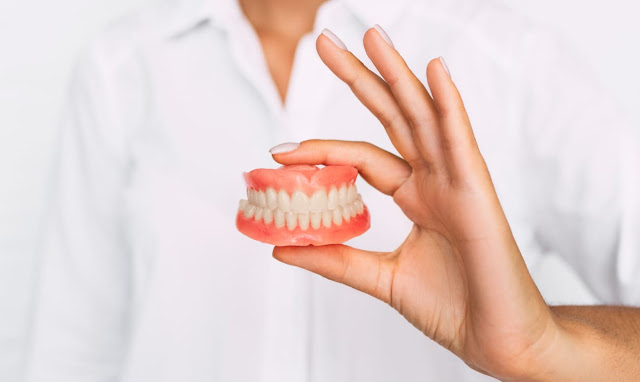Dentures: Everything You Need to Know
Dentures Melbourne have been around for centuries, and their basic design has remained relatively unchanged. Today, dentures are made from a variety of materials, including porcelain, plastic, and metal. They are custom-made to fit your mouth and gums and can be used to replace either all of your teeth (full dentures) or just some of them (partial dentures).
If you're considering getting dentures, there are a few things you should know. In this blog post, we'll cover everything from the different types of dentures available to how to take care of them. By the end, you'll be an expert on all things dentures!
Types of Dentures
Partial dentures are used to replace one or more teeth in your upper or lower jaw. They consist of artificial teeth set in a gum-like base that is connected by metal framework. Partial dentures are also removable but can be more stable because they are clipped or bonded onto your natural teeth.
Things To Know Before Getting Dentures
To help you out, we've put together a list of 10 things you should know before getting dentures. From what to expect during the fitting process to how to care for your new teeth, this guide will ensure that you're as informed as possible before taking the plunge.
Fitting Dentures Takes Time
Don't expect to walk into the dentist's office and walk out with a brand new set of teeth. The process of being fitted for dentures takes time and patience. First, your dentist will take impressions of your mouth in order to create a model of your teeth. Next, they'll use this model to create a wax version of your denture so that you can get an idea of how they'll look and feel. Only after you've approved the wax version will your dentist begin working on your permanent denture.
You May Need To See An Oral Surgeon
In some cases, patients may need to see an oral surgeon in addition to their regular dentist in order to get dentures. This is typically only necessary if extractions are required in order to prepare your mouth for dentures or if dental implants are being used to support your new teeth.
It Will Take Some Time To Get Used To Them
Wearing dentures is a big adjustment, both physically and emotionally. It will take some time for you to get used to wearing them and speaking with them in place. Be patient with yourself during this transition period and give yourself time to adjust.
- You May Experience Sore Spots At First
Another common side effect of wearing new dentures is sore spots where the plate rests on your gums. These sore spots are usually minor and can be easily alleviated by using dental adhesive or talking to your dentist about getting relined dentures (which have a softer base).
How to Care for Your Dentures
Caring for your dentures is important to ensure that they last as long as possible. Here are a few tips for taking care of your dentures:
- Remove your dentures every night before you go to bed and clean them with a soft-bristled brush and soap or toothpaste. Rinse them thoroughly before putting them back in your mouth.
- Soak your dentures in water or a mild dental cleanser overnight to keep them from drying out. Be sure to use distilled water if you live in an area with hard water.
- Avoid using harsh cleaners, bleaches, or other chemicals on your dentures as they can damage the material.
- Handle your dentures with care—dropping them can cause them to crack or break.
Conclusion:
Dentures have been around for centuries and can be an effective way to replace missing teeth. There are two main types of denture—full and partial—and they can be made from a variety of materials, including porcelain, plastic, and metal.
When caring for your denture it's important to remove them every night, brush them with a soft bristled brush using soap or toothpaste, and soak them overnight in water or mild dental cleanser. Thanks for reading and we hope this post has been helpful!

Comments
Post a Comment